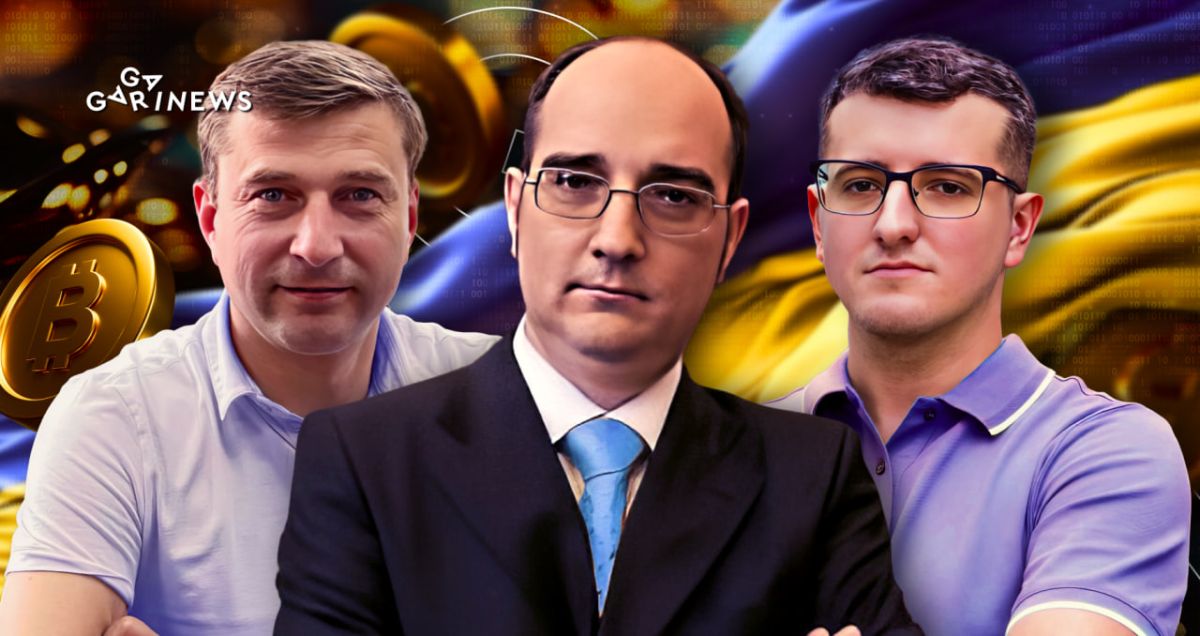Ukraine’s Crypto Future: Expert Predictions and Analysis

On September 29, GNcrypto journalists participated in an online panel discussion titled “European Regulation of the Cryptocurrency Market: Implementation in Ukraine”. Let’s explore the prospects of implementing the European set of cryptocurrency regulation rules, MiCA, in Ukraine.
On this page
The discussion was moderated by Yevhen Smychok, a member of the Advisory Board on Virtual Assets Regulation at the National Commission on Securities and Stock Market (NCSSM).
The invited speakers were experts from various European countries, each sharing their experience and insight into the implementation of unified regulations in the digital assets market:
- Gundars Ostrovskis, Head of the Digital Finance Unit of the European Commission's Directorate-General for Financial Stability, Financial Services and Capital Markets Union.
- Elena Brannetti, Senior Legal Officer at ESMA.
- Mari-Liis Kukk, Head of Innovation Department at Estonian Financial Supervision and Resolution Authority.
- Maria Tatsiou, Lecturer in Corporate and Financial Law at the University of Central Lancashire, Cyprus.
- Eugenijus Miliukas, a specialist in financial services regulation and Lecturer in Investment Services.
- Akvile Jurkaityte, an attorney specializing in banking law, fintech, and finance, Lithuania.
Representatives from Ukraine included experts in:
- Taxation (Dr. Serhii Broyakov, an Assistant Professor of Tax Law);
- Legislation (Yurii Boiko, a Member of the National Securities and Stock Market Commission);
- Economics (Dr. Anatolii Hulei, a Co-Chair of the Expert Council in the National Bank of Ukraine and CEO of the Ukrainian Interbank Currency Exchange);
- Law (Albina Savinova and Roman Krokhmal).
The European participants had a precise understanding of what the regulatory framework for digital assets could entail, the steps necessary to reach a level of fair acceptance and taxation, and the potential challenges to be encountered.
Gundars Ostrovskis elucidated the stipulations for issuers and how these are contingent upon the kinds of assets involved. He emphasized that European law already distinguishes between utility tokens, essential for acquiring goods/services of a project, and security tokens, deployed for raising capital. Therefore, the companies that release them will bear varying degrees of responsibility, respective to the token type.
Elena Brannetti detailed the actions that banks should undertake to counteract money laundering, including enhancing KYC verification procedures, fortifying the connections between the leadership of exchanges and financial regulators to ensure AML compliance, and scrutinizing suspicious transfers in tandem. She also defined the prerequisites for founders who are orchestrating ICOs.
Mari-Liis Kukk shed light on the MiCA platform and its operational dynamics once it is incorporated by all 27 member states of the European Union. She addressed how a comprehensive European ledger of all crypto entities dealing in digital assets would be established and the respective standards they would be subjected to. Under the revamped stipulations, a prerequisite will be the professional specialization of founders, a clean criminal record, and a favorable history of previous projects, among other things.
She also clarified why every novel token entering the market should possess a White Paper that has undergone scrutiny by independent experts.
As Ukraine is striving to become a full member of the EU, it will inevitably have to incorporate this legislation into its legal system, and this endeavor is anticipated to be quite challenging.
Alex Bornyakov, the Deputy Minister of Ukraine's Ministry of Digital Transformation, elucidated to GNcrypto journalists why the MiCA standards are presently not feasible in Ukraine.
Yet, this isn’t the paramount concern!
More crucial is the fact that the Law “On Virtual Assets”, enacted on February 17, 2022, has yet to be implemented and is unable to be operational. Yurii Boiko rightly pointed out that without modifications to Ukraine's Tax Code, this law lacks a foundation for enforcement.
Currently, Ukrainian experts are evaluating several alternatives for the potential taxation of cryptocurrencies. For instance, Yurii Boiko proposes:
- Exempting income up to 670,000 UAH per annum from taxation.
- Excluding the value of digital assets held for over a year from the tax base.
- Applying standard withholdings to cryptocurrency income (18% income tax + 1.5% military fee).
Serhii Broyakov conducted a more in-depth investigation, presenting a comparative analysis of cryptocurrency taxation in Poland, Germany, Hungary, and Malta. He recommended adopting certain elements from their tax laws.
For instance:
- Income from crypto transactions should be taxed as investment income, accounting for the costs of buying crypto and commission fees.
- Introduction of tax amnesty with favorable taxation for the past period.
- Establishment of non-taxable income from trading transactions and removing the obligation to declare it, provided that trading on the exchange is considered a hobby and doesn’t impact one’s financial status.
Anatolii Hulei elaborated on the losses Ukraine faces due to the absence of effective legislation and explored the potential of initiating a CBDC. Referencing China, where the digital yuan already facilitates 22% of the GDP, he proclaimed that Ukraine could alleviate 10% of the strain on the National Bank of Ukraine’s Mint by introducing a digital hryvnia. In 2020, a mere 35 countries were experimenting with CBDCs. This number has now increased to 114. Nevertheless, Ukraine lacks the prospects for such a project as long as the prevailing Tax Code is outdated.
The question regarding its adoption could have been addressed by Danylo Hetmantsev, the Chairman of the Verkhovna Rada Committee on Finance, Taxation, and Customs Policy. Regrettably, he opted out of participating in the panel discussion.
Currently, Ukrainian experts are without a clear vision regarding how they can integrate as equal participants within the European digital market. As aptly highlighted by the legal advisor Albina Savinova, it is imperative to bring modifications to the law passed in 2022, given that the technological market undergoes yearly transformations. There exists a considerable risk that, by the time alterations are made to the Tax Code, the entire law might require a complete overhaul.
In essence, the discourse predominantly remained a purely theoretical exploration, which is somewhat disheartening. The financial potential harbored by the Ukrainian digital market is colossal. However, as of now, Ukrainian entities tend to seek legal registration and licensing in nations where the legislative framework is transparent and operational.
The content on The Coinomist is for informational purposes only and should not be interpreted as financial advice. While we strive to provide accurate and up-to-date information, we do not guarantee the accuracy, completeness, or reliability of any content. Neither we accept liability for any errors or omissions in the information provided or for any financial losses incurred as a result of relying on this information. Actions based on this content are at your own risk. Always do your own research and consult a professional. See our Terms, Privacy Policy, and Disclaimers for more details.


























